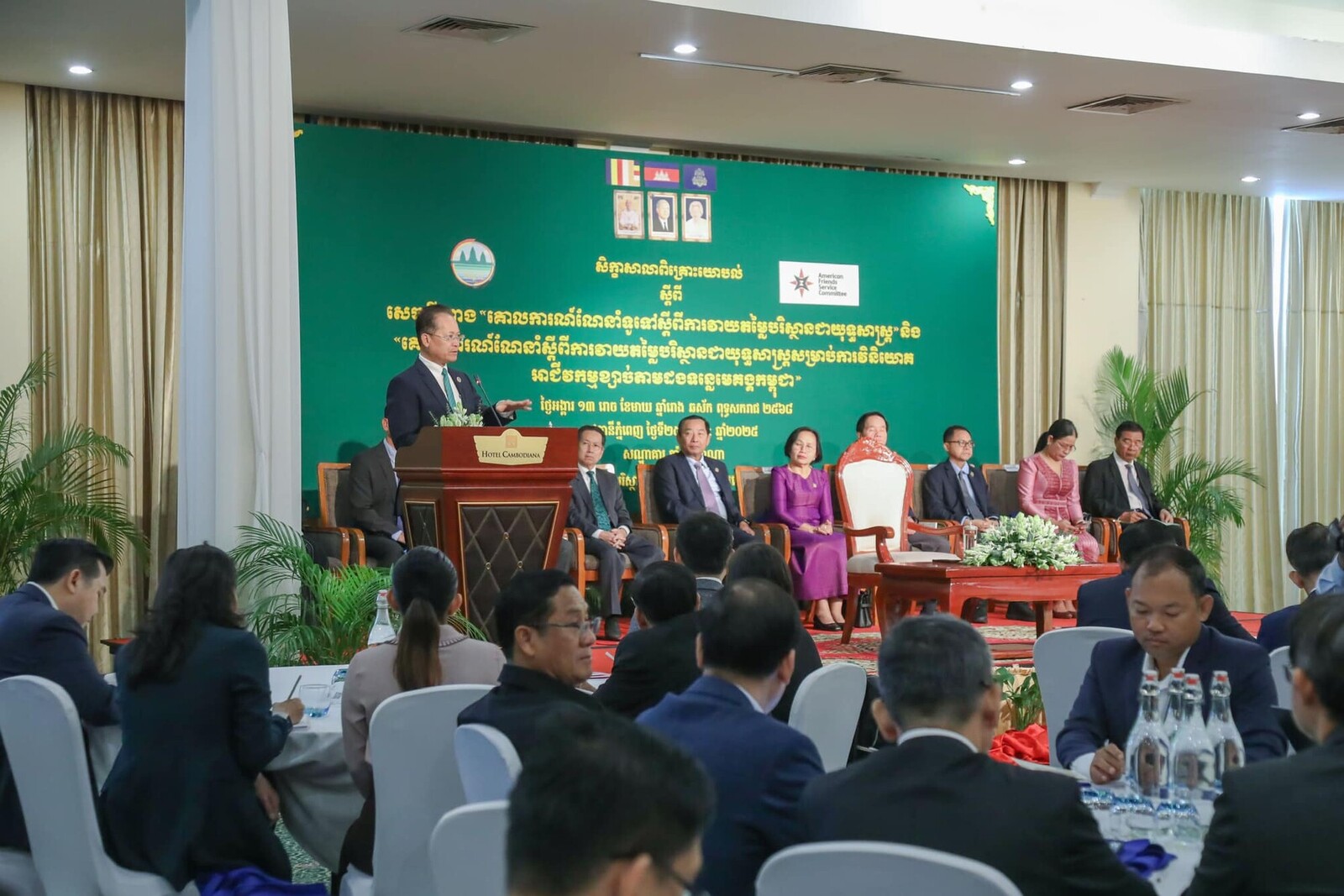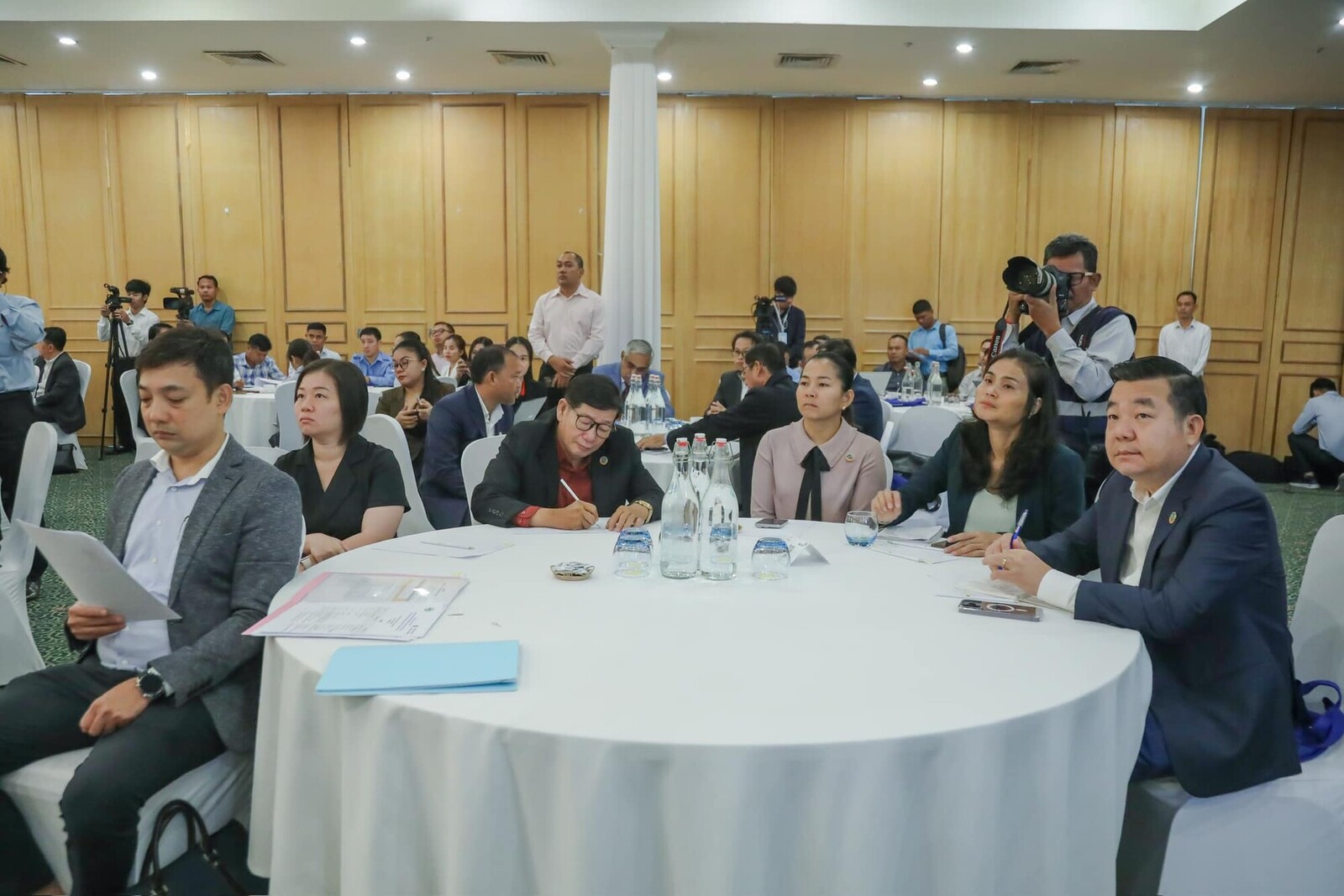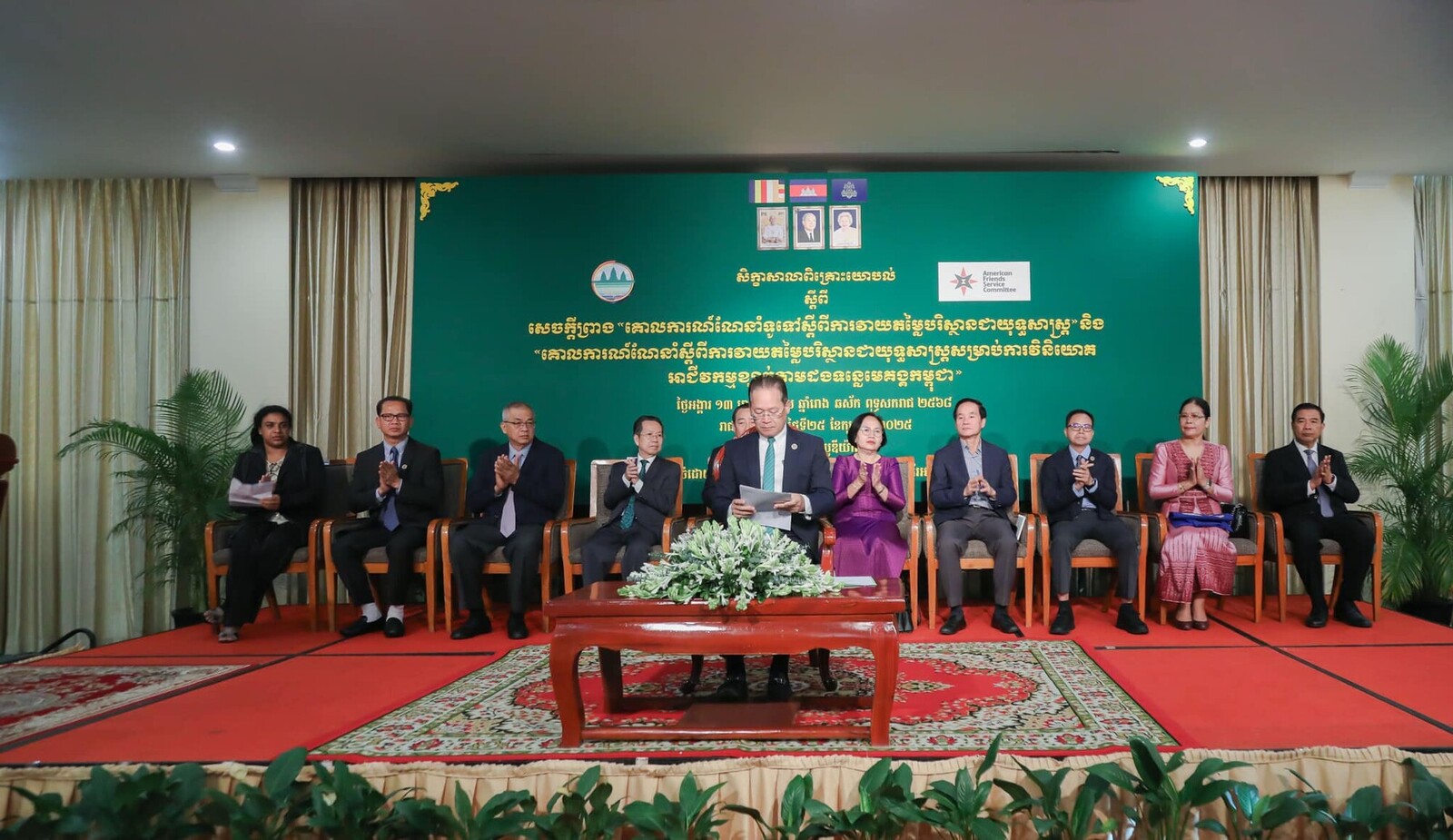
The American Friends Service Committee (AFSC) is honored to support Cambodia’s efforts to enhance environmental governance through the developing Strategic Environmental Assessment (SEA) guideline. On February 25, 2025, the Ministry of Environment (MoE) and AFSC Asia Regional office co-organized a Consultation Workshop on the Draft General Guideline for Strategic Environmental Assessment & Guidelines on Strategic Environmental Assessment for Sand Mining along the Mekong River in Phnom Penh, led by H.E. Dr. Eang Sophalleth.
This significant event fostered collaboration between government officials, civil society organizations, and stakeholders to advance environmental protection and sustainable development in Cambodia. The Ministry of Environment shows its commitment to implementing measures that mitigate environmental impacts and safeguard the country’s natural resources for future generations.

During the opening ceremony, Minister Eang Sophalleth emphasized the importance of SEA as a tool to integrate environmental, social, cultural, and economic considerations into policymaking and planning processes. He recognized the Department of Environmental Impact Assessment (DEIA) for its dedication to expanding Cambodia’s environmental legal frameworks. The minister also extended his gratitude to AFSC for its ongoing collaboration with the MoE.
The consultation workshop served as a critical platform for reviewing drafts of the "General Guideline for Strategic Environmental Assessment" and the "Guidelines on Strategic Environmental Assessment for Sand Mining along the Mekong River." Participants were encouraged to provide insights to refine these guidelines, ensuring their effectiveness in environmental governance.
The Royal Government of Cambodia has made significant strides in environmental regulation, launching the Code on Environment and Natural Resources. Minister Sophalleth underscored the importance of environmental impact assessments (EIA), stating, “If we do something without assessing the environmental impact, we won’t know how our actions affect the environment.” He reiterated Cambodia’s Circular Strategy on Environment, focusing on Cleanliness, Greenness, and Sustainability. Cleanliness refers to the cleanliness of the air, land and water.
In line with global sustainability goals, Cambodia aims for environmentally responsible investments that contribute to long-term development without harming ecosystems or public health. The SEA for sand mining is a pioneering model, setting the foundation for future assessments in six critical sectors: industry, energy, agriculture, forestry and land use, chemicals, and waste management. These assessments align with Cambodia’s goal of achieving carbon neutrality by 2050.
“According to the UN principles, we must act to reduce emissions and environmental impact in these six sectors. Yes, we will proceed with developing the strategic environmental assessments. Once the studies of these six sectors are complete, we will integrate them into Cambodia’s national-level environmental impact assessment strategy,” noted the minister.

AFSC has been a long-standing partner of the Ministry of Environment, supporting the country’s journey toward improved environmental governance. Over the past decade, AFSC has facilitated knowledge exchange, expert training, and the development of key environmental policy tools. A notable achievement was the publication of the "Guidebook on Addressing Involuntary Resettlement Challenges for Private Investment Projects in the Context of Environmental and Social Impact Assessment" in June 2021.
This workshop is a continuation of AFSC’s collaboration with the MoE under the existing Memorandum of Understanding (MoU). Our joint efforts aim to strengthen Cambodia’s environmental governance through the development of SEA guidelines and regulations.
During his closing remarks, Tea Choup, Secretary of State at the Ministry of Environment, requested that AFSC continue supporting and expanding our collaboration to develop strategic environmental assessments in other critical sectors. As the minister mentioned, these include industry, energy, agriculture, forestry and land use, chemicals, and waste management.
In response, the AFSC Asia Regional Office sincerely appreciates the Ministry of Environment’s unwavering commitment, particularly the Department of Environmental Impact Assessment (DEIA), in advancing sustainable environmental policies and practices in Cambodia. AFSC hopes to schedule a meeting soon to further discuss the next phase of our collaboration.